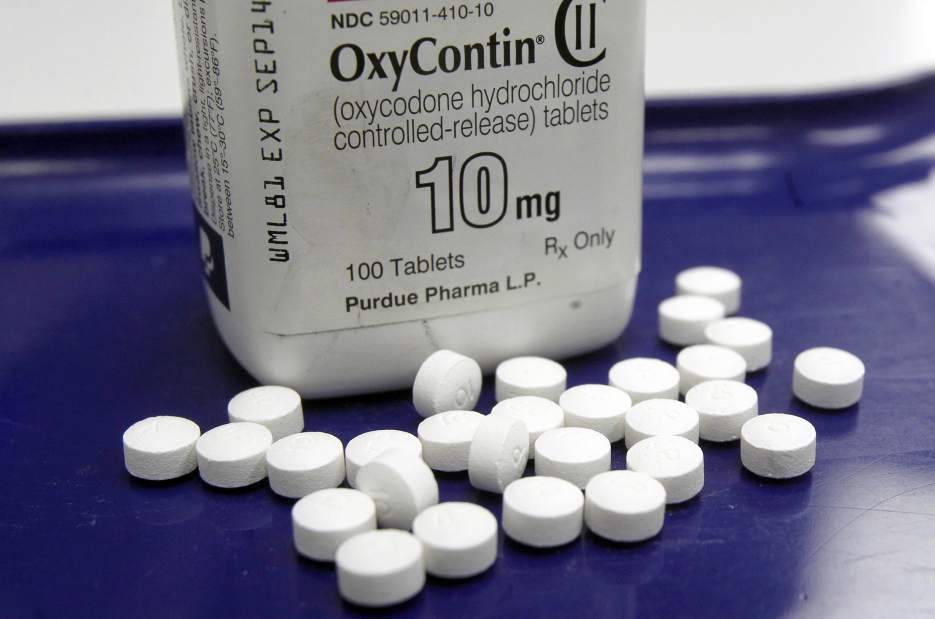https://archive.triblive.com/local/westmoreland/jury-out-on-whether-westmoreland-county-can-recoup-opioid-epidemic-costs-from-drug-companies/
Jury out on whether Westmoreland County can recoup opioid epidemic costs from drug companies

In an attempt to curb the growing problem of drug abuse, Hampton Township is hosting a roundtable summit to try and combat what is rapidly becoming an epidemic.
While large settlements in lawsuits against tobacco companies in the 1990s laid out a blueprint, it's unclear if similar, present-day suits against the pharmaceutical industry amidst a deadly opioid epidemic ÔÇö including one planned by Westmoreland County ÔÇö will play out that way.
In 1998, the tobacco industry paid $200 billion to settle suits brought by 46 attorneys general.
ÔÇťIt's just really hard to say,ÔÇŁ said Richard Ausness, law professor at the University of Kentucky. ÔÇťIt you look at some of the parallels, the tobacco cases were settled, so who knows if they would've prevailed or not.ÔÇŁ
Saint Vincent College law professor Bruce Antkowiak said that ÔÇťmore than a crystal ballÔÇŁ would be needed for a prediction, adding that the legitimacy of prescription medication is an issue that could be raised in the opioid suits filed locally and across the nation.
ÔÇťIt has some differences to the tobacco cases that are going to be the battleground in (the opioid) case,ÔÇŁ he said.
Westmoreland County this week approved hiring two law firms to prepare a lawsuit seeking damages to recoup about $19 million in tax dollars county officials said was spent in 2016 to battle the opioid epidemic. The county joins six others in Pennsylvania in suing drug manufacturers and doctors as a result of record overdose deaths and skyrocketing public spending.
Marc J. Bern & Partners, a New York-based firm, and Robert Peirce & Associates in Pittsburgh will receive 25 percent of any money the county wins through the lawsuit. No additional expenses will be paid to those firms for their representation. Preparation of the suit against 24 manufacturers, distributors and doctors is being finalized.
County officials plan to do a more thorough assessment of how much has been spent on the decade-long drug epidemic. They've asked departments that have direct contact with drug abuse to calculate how much they spend on programs such as incarcerating inmates charged or convicted with drug crimes at the county jail, prosecuting drug cases and other impacts on the local justice system and coroner's office.
In an August report, Controller Jeffrey Balzer said that nearly a quarter of all property taxes collected in 2016 by the county is directed to fighting the crisis that claimed 296 lives in 2015 and 2016. At the time, he called the dollar figure a conservative estimate.
Westmoreland's drug-related costs totaled $18.8 million last year and represented about 6 percent of the county's $300 million budget and more than 23 percent of the roughly $82 million collected in county property taxes. Roughly $10 million was spent at the county prison and $522,000 by the coroner's office directly related to the epidemic. More than half of the 6,000 criminal cases filed in the county last year were drug-related, officials estimated.
Overdose deaths in 2017 are again expected to reach a record. Through Nov. 3, the coroner's office confirmed 122 overdose deaths with another 45 suspected cases pending final toxicology reports.
One difference between the 1990s tobacco lawsuits and the opioid cases is in the use for each product.
ÔÇťThe drugs that they produce and prescribe here have an ... appropriate medical use,ÔÇŁ Antkowiak said, adding it could be one point the defense would bring up. ÔÇťThe problem is they are so readily and easily obtained.ÔÇŁ
The fact that the county's lawsuit is being handled on a contingency basis means ÔÇťthey're not risking too much,ÔÇŁ Ausness said.
Plaintiffs would rather settle quickly, but with the growing number of parties seeking monetary damages in the opioid issue, it will be difficult to get everyone together, he said.
ÔÇťThere'll be hundreds more, I'm sure,ÔÇŁ Ausness said.
But litigation among municipalities and attorneys isn't the best solution to a public health crisis where interests of those affected may not be considered in any negotiations, he said.
ÔÇťEven if they win, who's to say they're going to spend the money on drug treatment,ÔÇŁ Ausness said.
Renatta Signorini is a Tribune-Review staff writer. Reach her at 724-837-5374, rsignorini@tribweb.com or via Twitter @byrenatta.
Copyright ©2025— Trib Total Media, LLC (TribLIVE.com)
